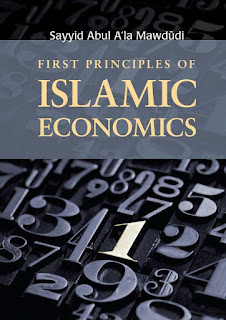Quran in the Perspective of History
Quran in the Perspective of History
Allah(swt) presents ayat which explain events that are beyond the limits of recorded history.
Recorded history has little to tell us about the tears that Yaqub(as) cried or the struggles Yusuf(as) endured or the bravery, courage and patience Musa(as) exercised.
Yet, these stories are presented in a precise and eloquent style so much that there is no vanity in the information provided, yet the focus is drawn to the lessons that the ummah of Muhammad(saw) are to learn from, in relation to the events of the past.
In fact, it is said that only an approximate of roughly 500 or so ayat are about legislation and ahkam while the many from the remaining 6000 or so ayat are Qasas (stories) and nurturing and consoling the troubled hearts of the Muslims in every era of struggle and victory. Such is the miracle of Quran that only 500 or so ayat are sufficient to shape an entire civilisation through the principles of Usool and the tools to perform Ijtihad.
Which other book do Muslims keep on their bookshelves only to read and recite while they fail to understand a single word?
It is true that the loss of the Arabic language is one factor that has heavily contributed to the decline of the Muslims for it is a major requirement to perform Ijtihad and the failure to perform Ijtihad is the paralysis of Islam.
It is Fardh Kifayah for the Ummah to have Mujtahideen in every locality so that Islam reflects the linguistic and true meaning of “Shariah” – i.e. a non-exhaustive abundant source of water for water is that which gives life and it is vitality for all that which lives and breathes.
“The doors of Ijtihad remain open but not for the ignorant” – Imam Shawkani(ra)
The Shariah is non-exhaustive and it has the potential to provide a solution for every problem in every time. It is not possible for Islam to provide solutions in a globalised world without Ijtihad. The 500 or so ayat about ahkam (rulings), mu’amalat (transactions) and legislation will remain mere academia and it will be impossible to form practical applications without Ijtihad.

Surah Al-Fatiha, Verse 6:
اهْدِنَا الصِّرَاطَ الْمُسْتَقِيمَ
Guide us towards the straight path.
Surah Al-Fatiha, Verse 7:
صِرَاطَ الَّذِينَ أَنْعَمْتَ عَلَيْهِمْ غَيْرِ الْمَغْضُوبِ عَلَيْهِمْ وَلَا الضَّالِّينَ
and the path of those you have bestowed your favour upon and not of those who have earned your wrath nor those who have gone astray.
The Muslims are the ones who learn from the past and they follow the Sunnah of the Prophet Muhammad(saw). They do not imitate the failure of past nations and they are the ones who call to Allah(swt) in every Salah as a collective, even when they offer the Salah alone. The Fatiha does not allow us to call to Allah(swt) as isolated individuals and it is incumbent upon us that we acknowledge that we belong to one nation and we are inseparable from the Ummah.
The stories in Quran about the Jews and their disobedience and resistance to the message of Musa(as) or the Christians who attributed partners to Allah(swt) are not so that we can assume superiority and arrogance over other nations. Rather, these are stories and events that Allah(swt) relates to the Ummah of Muhammad(saw) for we will experience the same troubles and we will fall into the same pits as the nations before us.
The method to establish the historical accuracy that the events did indeed take place are also unique in the sense that few artefacts and physical proofs remain of the actual incidents. There is little physical proof that Musa(as) did indeed split the sea; that the young men did retreat to the cave for hundreds of years or the dialogue that took place between the messengers and their people before the city of Antioch was completely destroyed.
Rather, the events are verified through the proof of the legitimacy of the Quran itself in that it is a linguistic miracle throughout and none have been able to produce the likes of it. As a result, whatever originates from truth in itself is truth. The entire transmission of all the texts of Quran are Mutawatir and it is not possible to deny their source; the formation of these letters and words are from none other than Allah(swt).
Unfortunately, today we have lost context of the amazing stories and events that Allah(swt) relates to us and we are unable to see the relevance of how they apply to our situations.
Beyond the legislative paradigm of the texts, it is clear that the stories of Quran also provide us Siyasah (managing and looking after the affairs of the people) through events and problems that occurred in the lives of the Prophets(as). It is also clear that through every time, the events from history remain relevant to our own lives as individuals and as one Ummah.
It is not strange that Allah(swt) relates to us the story of Yusuf(as) and the envy and betrayal he received from the hands of his own brothers as well as the deep continuous sorrow his father experienced after losing him.
We are the ones who will experience similar trials in our own lives upon losing loved ones; experiencing problematic family issues having to exercise emotional and political intelligence, as well as the global struggles as one Ummah where it would be impossible to persevere without a similar patience like that of Yaqub(as).
The long dark years of patience and hardship that Yusuf(as) experienced in prison are not unlike the patience that the thousands of dawah carriers, sincere scholars and true representatives of the deen have experienced throughout our history.
“How many are famous in the sight of Allah(swt) yet they are unknown in the Dunya”
Our history is testament to this – Imam Abu Hanifa(ra), Imam Malik(ra) and Imam Ahmad bin Hanbal(ra) were all imprisoned for remaining steadfast on the truth. Sayyid Qutb wrote much of his Tafseer of Quran between prisons in Egypt and Shaykh Taqi Uddin An Nabhani(ra) also produced much of his masterpiece - Ash Shakhsiyyah while he was imprisoned.
It seems that this theme of patience, hardship and imprisonment repeats in the lives of those who call for the deen in ease and difficulty. Surah Yusuf continues to be learnt and memorised by the political prisoners who refuse to give up the call for Islam throughout the world – those who live by Islam and those who live for Islam.
The events surrounding the tyranny and oppression that the Jews suffered at the hands of Firaun describe a broken nation and the struggles of a Prophet in trying to steer his people in the right direction. The political discourse between Musa(as) and Firaun are captured in the ayat of Quran. In every period of history the Muslims have suffered the oppression of tyrants and these ayat will remain relevant throughout.
The story of Shuayb(as) describe the characteristics of a people that are essentially secular and unwilling to allow the deen of Islam to have any impact on their daily lives. Surah Al Fath restructures our whole perspective on victory after the humiliation and sorrow the Muslims experienced after the treaty of Hudaybiyah. The story of Al Khidr(ra) helps us to acknowledge our own limitations in perspective and judgement. Surah Al Mulk emphasises and reiterates the normality of death. Every Surah and every ayah offers us perspective.
The ayat inside the book should remind us of the ayat outside the book and the ayat outside the book should remind us of the ayat inside the book.
Throughout the Quran, there are lessons that we will learn and if we take a step out of the pits of decline, we will also see how the ayat of Quran are not only explaining what once was but also what currently is.


Comments
Post a Comment